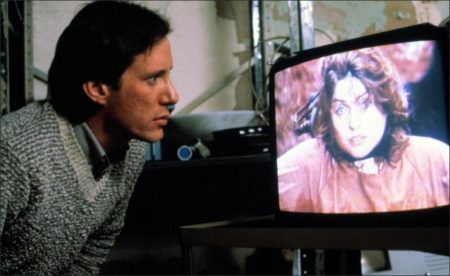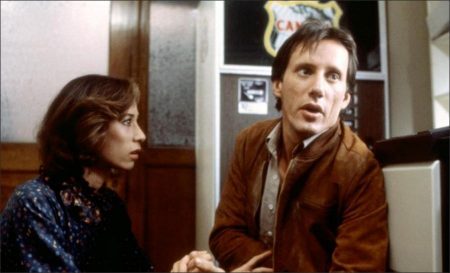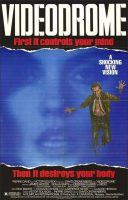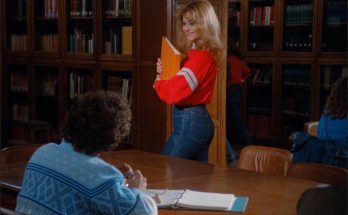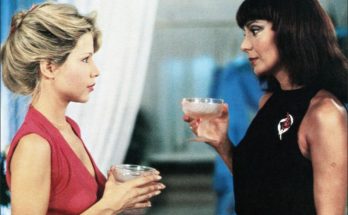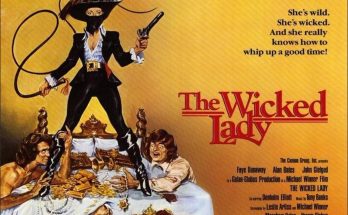Taglines: First it controlled her mind, then it destroyed her body… Long live the new flesh!
Videodrome movie storyline. Max Renn runs a TV channel, and when looking for new material to show–he discovers “Videodrome.” His girlfriend, Nicki Brand, goes to audition for the show, and Max gets drawn into the underlying plot that uses the show as its front for a global conspiracy.
Videodrome is a 1983 Canadian science fiction body horror film written and directed by David Cronenberg, starring James Woods, Sonja Smits, and singer Deborah Harry. Set in Toronto during the early 1980s, it follows the CEO of a small UHF television station who stumbles upon a broadcast signal featuring extreme violence and torture. The layers of deception and mind-control conspiracy unfold as he uncovers the signal’s source and loses touch with reality in a series of increasingly bizarre and violent organic hallucinations. The film has been described as “techno-surrealist”.
About the Story
Max Renn (James Woods) is the president of CIVIC-TV (Channel 83, Cable 12), a Toronto UHF television station specializing in sensationalistic programming. Displeased with his station’s current lineup (which mostly consists of softcore pornography and gratuitous violence), Max is looking for something that will break through to a new audience.
One morning, he is summoned to the clandestine office of Harlan (Peter Dvorsky), who operates CIVIC-TV’s unauthorized satellite dish which can intercept broadcasts from as far away as Asia. Harlan shows him Videodrome, a plotless television show apparently being broadcast out of Malaysia which depicts the brutal torture and eventual murder of anonymous victims in a reddish-orange chamber. Believing this to be the future of television—(staged) snuff TV—Max orders Harlan to begin unlicensed use of the show.
Appearing on a talk show, Max defends his station’s programming choices to Nicki Brand (Deborah Harry), a sadomasochistic psychiatrist and radio host, and Professor Brian O’Blivion (Jack Creley), a pop-culture analyst and philosopher who will only appear on television if his image is broadcast into the studio, onto a television, from a remote location. O’Blivion delivers a speech prophesying a future in which television supplants real life.
Max dates Nicki, who is sexually aroused when he shows her an episode of Videodrome and coaxes him into having sex with her while they watch it. Max goes once again to Harlan’s office, where Harlan tells him that the signal delay which caused it to appear to be coming from Malaysia was a ploy by the broadcaster and that Videodrome is being broadcast out of Pittsburgh, Pennsylvania.
Max tells Nicki this and she excitedly goes to Pittsburgh to try and audition for the show under the guise of a business trip, but never returns. Max contacts Masha (Lynne Gorman), a softcore pornographer, and asks her to help him find out the truth about Videodrome. Through Masha, Max learns that not only is the footage in Videodrome not faked, but it is the public “face” of a political movement. Masha further informs him that O’Blivion knows about Videodrome.
About the Music
An original score was composed for Videodrome by Cronenberg’s close friend, Howard Shore. The score was composed to follow Max Renn’s descent into video hallucinations, starting out with dramatic orchestral music that increasingly incorporates, and eventually emphasizes, electronic instrumentation
To achieve this, Shore composed the entire score for an orchestra before programming it into a Synclavier II digital synthesizer. The rendered score, taken from the Synclavier II, was then recorded being played in tandem with a small string section. The resulting sound was a subtle blend that often made it difficult to tell which sounds were real and which were synthesized.
The soundtrack was also released on vinyl by Varèse Sarabande and was re-released on compact disc in 1998. The album itself is not just a straight copy of Howard Shore’s score, but rather a remixing. Howard Shore has commented that while there were small issues with some of the acoustic numbers, that “on the whole I think they did very well”. The album is currently out of print.
Awards
Despite its poor commercial performance, Videodrome won a number of awards upon its release. At the 1984 Brussels International Festival of Fantasy Film it tied with Bloodbath at the House of Death for Best Science-Fiction Film and Mark Irwin received a CSC Award for Best Cinematography in a Theatrical Feature.
Videodrome was also nominated for eight Genie Awards with David Cronenberg tying Bob Clark’s A Christmas Story for Best Achievement in Direction. In 2007, Videodrome scored fourth on Bravo TV’s “30 Even Scarier Movie Moments”. It was also selected as one of the 23 Weirdest Films of All Time by Total Film.[8] It was named the 89th most essential film in history by the Toronto International Film Festival.
Videodrome (1983)
Directed by: David Cronenberg
Starring: James Woods, Debbie Harry, Sonja Smits, Peter Dvorsky, Leslie Carlson, Jack Creley, Lynne Gorman, Julie Khaner
Screenplay by: David Cronenberg
Cinematography by: Mark Irwin
Film Editing by: Ronald Sanders
Costume Design by: Delphine White
Set Decoration by: Angelo Stea
Art Direction by: Carol Spier
Music by: Howard Shore
Distributed by: Universal Pictures
Release Date: February 4, 1983
Views: 144
